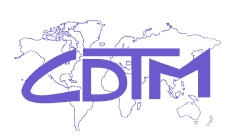| Résumé |
Abstract: "Drawing on a survey of 148 Fairtrade-certified smallholder coffee farmers in the Kagera region of Tanzania, a quantitative investigation was performed on the farmers’ motivations for Fairtrade certification. A factor analysis approach was used to analyze the importance of economic, social, and environmental motivations in farmers’ decision-making on Fairtrade-labeled coffee certification. Moreover, three ordered logit models were estimated to assess the determinants of motivational behavior for Fairtrade certification among different socioeconomic groups in the survey sample. Overall, the results indicate that Fairtrade certification is predominantly economically motivated. Particularly, farmers are relatively less environmentally motivated to adopt the Fairtrade system. However, female coffee farmers are significantly more environmentally driven to adopt Fairtrade certification. Surprisingly, the results suggest that farmers’ level of education has no significant influence on their motivation for Fairtrade certification. Moreover, lower-income and smaller-scale coffee farmers are less economically and environmentally motivated for Fairtrade certification. In light of these findings, we suggest that efforts to promote Fairtrade certification among smallholder growers should be designed in ways that balance economic, social, and environmental outcomes. Furthermore, the findings call for targeted measures to strengthen Fairtrade’s commitment to empowering disadvantaged smallholder farmers, including women, to achieve sustainable development goals in the region."
|
 CDTM de Paris
Centre de ressources sur le commerce équitable
CDTM de Paris
Centre de ressources sur le commerce équitable
